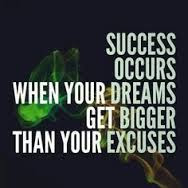Many put down their success in running/endurance/athletics to performance – podium, result or improvement. Yet, many don’t start running/triathlon with the ambition to win, or place, or improve times. Their goals are often about health and fitness, and can be deeply personal. Their reasons to continue to run often differ. Ultimately, all runners – with consistent effort and regular running – improve.
 Improvement comes in many guises too: in how easy a run or a hill or a given pace feels; how often a runner gets out the door; how much easier it is to talk when running; learning stuff about their body, running & fitness; buying new workout, active-wear or training clothing and shoes with passion and pride; feeling more confident; losing weight; feeling better; recovering quicker, being less tired and less sore. All are qualitative markers of improving as a runner.
Improvement comes in many guises too: in how easy a run or a hill or a given pace feels; how often a runner gets out the door; how much easier it is to talk when running; learning stuff about their body, running & fitness; buying new workout, active-wear or training clothing and shoes with passion and pride; feeling more confident; losing weight; feeling better; recovering quicker, being less tired and less sore. All are qualitative markers of improving as a runner. And are distinctly yours too.
The quantitative markers – going further, and going faster – are easier to measure. Yet, they are not for everyone, and soon fade as improvement is not linear, nor ongoing and forever.
The strategies that worked for your first year or two will not work as effectively as you accumulate your running miles, experience and time. And, there will aways be someone faster and sleeker, with brighter and newer gear, who can run further easier.
The strategies that worked for your first year or two will not work as effectively as you accumulate your running miles, experience and time. And, there will aways be someone faster and sleeker, with brighter and newer gear, who can run further easier.
Many consider "physical fitness” the most important aspect of improving. “Fitness” is an important part of performance. Ongoing performance improvement is as much about "mental fitness” and preparation as it is about the physical.
Many create (mental) barriers, challenges and road-blocks for themselves and train and run (and race) with the hand-brake on.
You see it in their habits - movement, training, lifestyle and recovery habits; their body-language; you hear it in their self-talk, their out–talk, their words, their message; you sense it in their company, and around others. They often look back on what hey could’ve, should’ve or would’ve, yet didn’t.
They can obsess about “can’t”, when they really mean “won’t”, “didn’t” when they mean “wouldn’t".
They continue to do what they've always done, yet wonder why they don't improve.
A strength becomes a weakness.
They continue to do what they've always done, yet wonder why they don't improve.
A strength becomes a weakness.
They've become their own greatest barrier to success.
Ask yourself: “how do I think and talk about myself as a runner/triathlete/athlete?”, “how do I think and talk about training and racing?”, “do I think and talk about problems, barriers, weakness and the past, or do I think, talk and act about them as opportunities and paths to improve?”, “am I a I can’t’ or ‘I won’t’ or ‘I haven’t, but will’ thinker?”
Are my thoughts and words destructive or constructive, reflexive or reflective, reactive or proactive?
Do I do (train, race, recover) and say and think the same things, yet expect different results?
Do I do (train, race, recover) and say and think the same things, yet expect different results?
Your actions - your habits of movement, your habits of mind, and your habits of, at and about training – will determine what (if anything) you do about those answers, and your future success.
Go. Think better. Talk better.
Take the handbrake off.
Run better.
Succeed.
